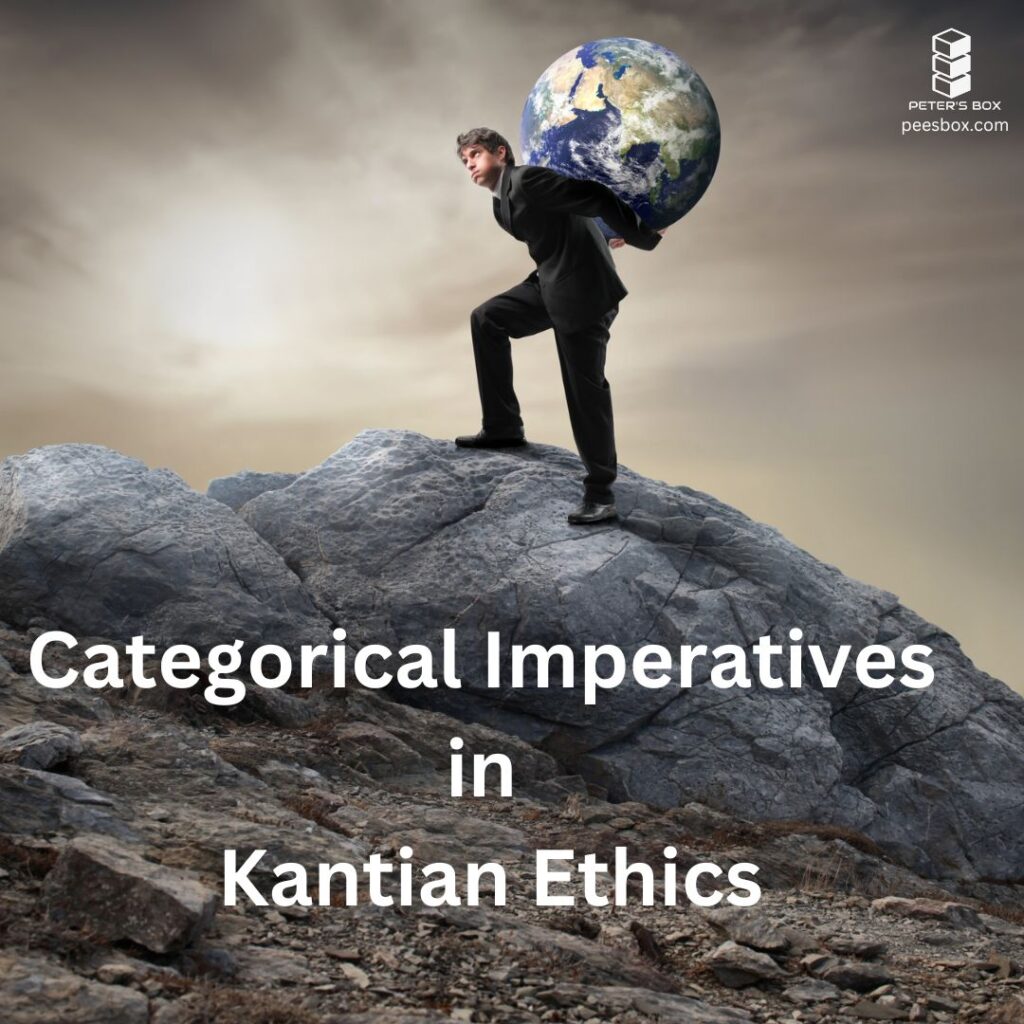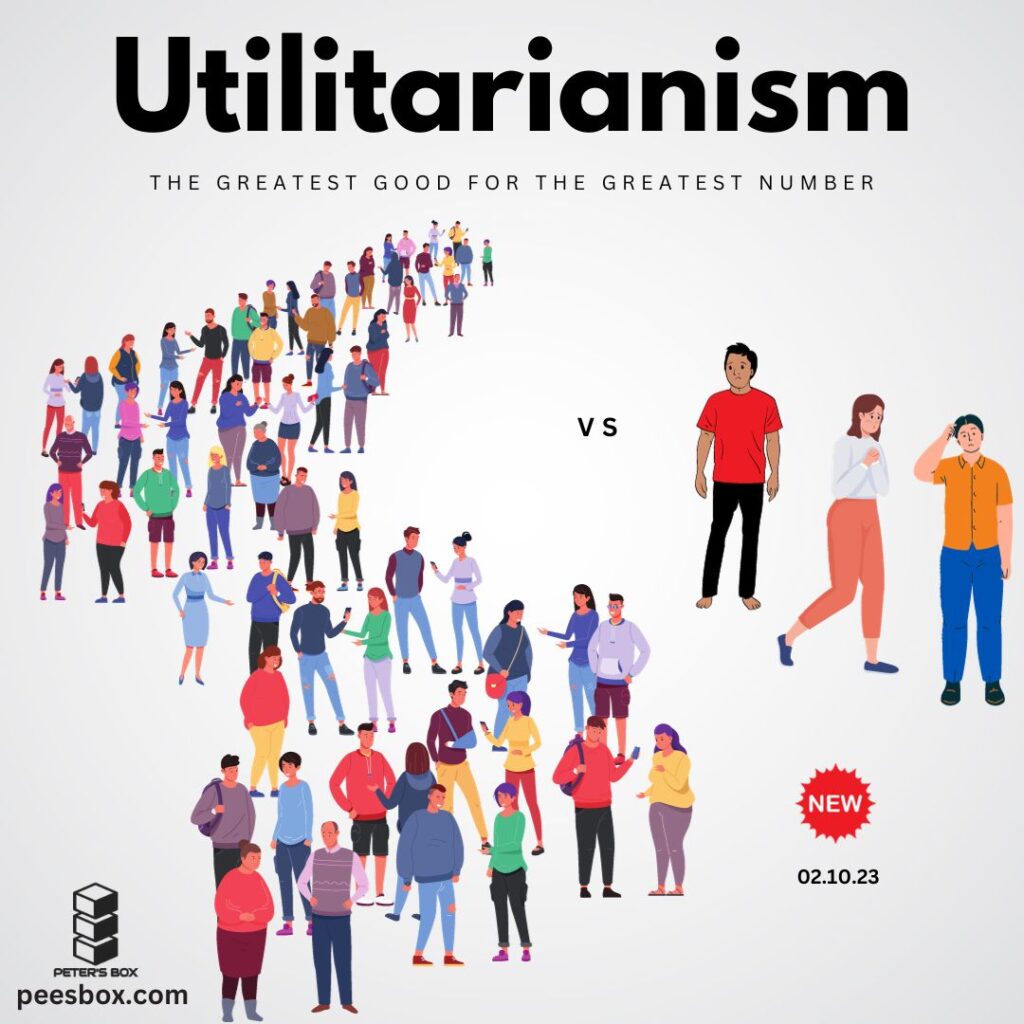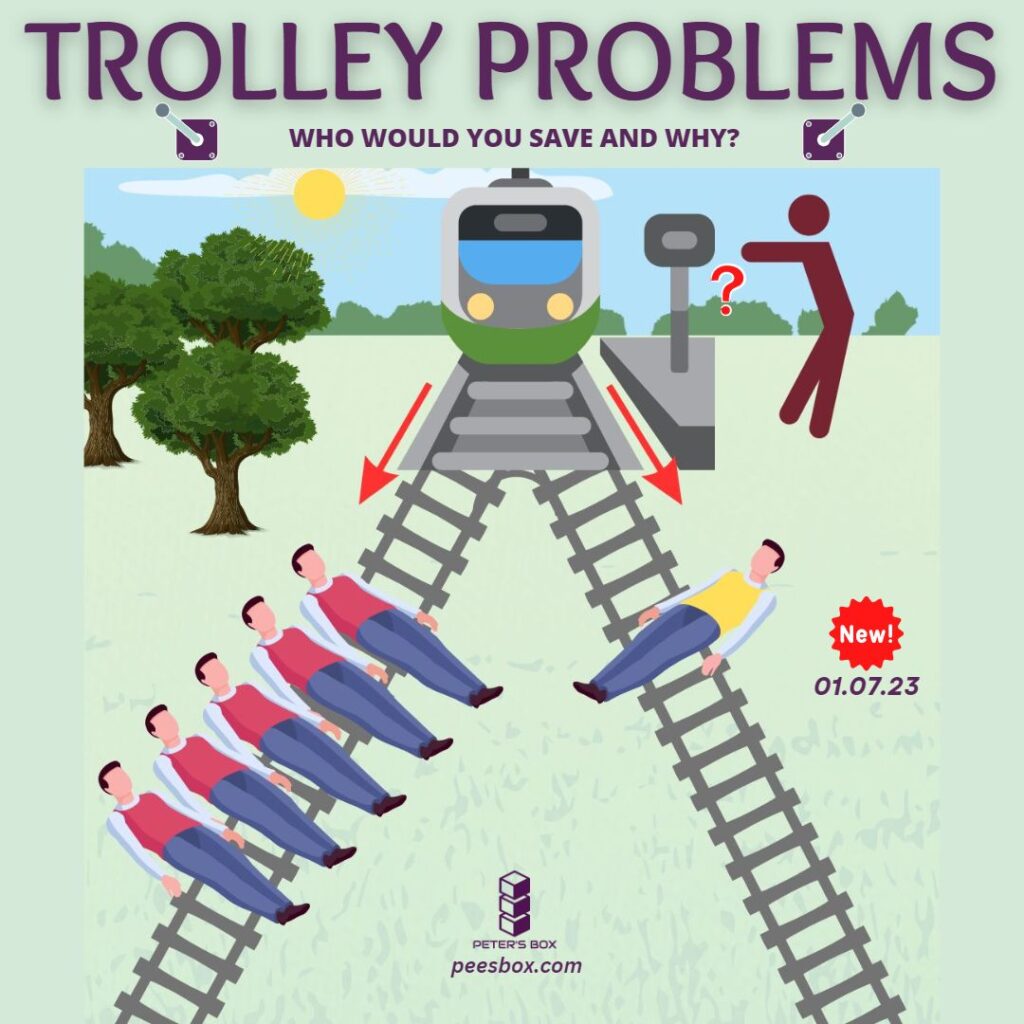Last updated on December 5th, 2023 at 11:35 am
Kantian ethics is a moral philosophy named after the philosopher Immanuel Kant. Kantian ethics is also known as Kantianism. Immanuel Kant was a German philosopher born in Königsberg, Prussia. Kant’s works appear to be rather advanced. Although he wrote in German, his writings have been translated into English. The English versions are also wordy. The great thing about Kant is his use of examples to explain his point.
It is your duty to be moral
Fundamentally, Kant believes an action is moral if it is motivated by a sense of duty. Duty is one of the distinguishing features of Immanuel Kant’s moral theory. The term “duty” directly connects to the field of ethics known as deontology. As mentioned in the post ‘Is Morality Objective?‘, deontology is a branch of normative ethics that holds that it is your duty to obey moral laws or principles regardless of the consequences. Kantianism, unlike utilitarianism, is not concerned with consequences. Duty is a central idea of Kantian ethics. Duty, goodwill, and the categorical imperative are the three main components of Kantian ethics.
The only good is goodwill
In Kantian ethics, duty is immutable. Not happiness, courage, love, pleasure, or consequences. Kant argues that the only thing that is good is goodwill. For example, if someone is happy and that happiness was obtained by scamming or cheating others, we do not consider that “happiness” to be “good.” Kant emphasises that we have control over goodwill. Other variables, like consequences, are not. We have the power to act out of goodwill because it is within our ability to do so. Consider the following scenario:
Two soldiers are fighting their way through a battlefield to save twenty individuals. The first soldier is shot and killed instantaneously by the enemy. The second soldier, on the other hand, succeeds in rescuing the twenty people. Despite the fact that the first soldier lost his life while the second soldier was successful in rescuing the 20 people, we nevertheless regard both as moral heroes. Their actions are morally commendable, clarifying Kant’s idea that a moral action is one motivated by a sense of duty.

Kantian ethics in a shop
Consider another case featuring three shopkeepers. Let’s call them Prudential, Emotional, and Principled. Prudential gives fair prices to her customers. She provides excellent service to her clients. When asked why she does this, Prudential explains that it is good for her business. Emotional gives fair prices to her customers. She provides excellent service to her clients. When asked why she does this, Emotional explains that she loves them and wants to give them quality service. Principled gives fair prices to her customers. She provides excellent service to her clients. When asked why she does this, Principled explains that it is the right thing to do—it is her duty.

According to Kantian ethics, based on their motives (intention), Principled is the morally upright individual. She is driven to act by a sense of obligation. Her motivation is unconditional, as opposed to Prudential and Emotional, who are motivated by some personal interest. Kant underscores the significance of free will in morality by using the term goodwill. Though free will is a contentious topic, it is an essential component in any moral situation. Let’s look at how free will affects our evaluation of two identical situations.
Kantian ethics and intention
Situation 1: You and a friend are strolling along the street. While you are strolling on the street, your companion is walking beside a gutter. Suddenly, you push him. You squeal with laughter as he tumbles into the gutter. When your friend fell into the gutter, he sprained his ankle.
Situation 2: You and a friend are strolling along the street. While you are strolling on the street, your companion is walking beside a gutter. All of a sudden, you lost your balance and started to tumble. Your hand just so happened to graze your friend’s side as you were falling. As a result, he lost his equilibrium and fell into the gutter, spraining his ankle.

In one of these two scenarios, would you consider yourself morally responsible for what happened to your friend? Obviously, that would be scenario 1, because you did it on purpose. In scenario 2, you had no intention of causing your friend to fall; hence, you are not morally liable because it was an accident. This also explains why we don’t think of infants as moral agents since we don’t think they have free will.
Imperatives in Kantian ethics
Keep in mind that duty is just one aspect of Immanuel Kant’s moral philosophy. It would be incomplete without the action itself. If morality is measured solely by duty, then any evil act can be undertaken in the name of duty. This was something Kant was fully aware of. The imperative, the third aspect, describes what makes an action moral. Imperative denotes critical importance, a certain urgency, or an authoritative command. According to Kant, there are two sorts of imperatives: hypothetical and categorical.
Hypothetical Imperative
Hypothetical here means based on a condition or conjecture. A hypothetical imperative is one that comes after a condition. You can call it the conditional imperative. They are, by nature, amoral—not a moral question. Hypothetical imperatives come into play when talking about goals and desires. Here are some examples of the hypothetical imperative:
- If you do not want to be beaten by the rain, don’t go out without an umbrella.
- If you want to pass your exams, study hard.
- If you want to grow, eat healthy.
- If you do not want to go to jail, do not commit crimes.
Categorical Imperative
Something categorical is absolute, definite, direct, unconditional, or unqualified. A categorical imperative is therefore a clear or unqualified action that needs an elevated sense of urgency. But the question is, what makes it unconditional, and how does one know it requires urgency? Kant presented four formulations of the categorical imperative. However, two of them are quite popular. Formulations are just different ways of framing or explaining the same idea.

1st formulation
“Act only according to that maxim whereby you can at the same time will that it should become a universal law.”
What precisely does this mean? It means that the only actions you may undertake are those that you would agree with if everyone else took them. A maxim is a broad guideline or principle of behaviour. A universal law is a rule or law that must be observed in all similar situations. This first formulation is a bit of a stretch, so let’s go over it:
- Figure out what the maxim of the action is.
- Apply the principle of universability to it.
Assume that any action you intend to take will be taken by everyone. If you can perform that action but others cannot, you have a contradiction. Therefore, it cannot be made into a universal law. However, if the action you intend to take can be taken at any time by anybody, it can be universalized—made into a universal law. To put it another way, would everyone agree to follow that maxim?
If we all broke promises
For example, Kofi offers to lend Ama his book for a week of study. Ama promises she’ll return Kofi’s book before the end of the week. Ama does not return Kofi’s book as promised before the end of the week. When Kofi inquires about the book, Ama responds that she lost it when a thief snatched her bag as she was returning home the day Kofi had given the book to her. Ama had intended to sell Kofi’s book to another student, which she accomplished. Contrary to what she said, her bag was never stolen.
Let’s apply the first formulation of the categorical imperative to this situation. We must first identify the action’s maxim and then universalize it to see whether there is any contradiction. The maxim of an action is the general principle of an action without its specificities. The maxim of Ama’s complete actions was ‘to make a promise and not fulfil it’. That sums up her behaviour. Let us now universalize it.

Universalize the maxim
You: Ama, would you want someone to make a promise to you and not fulfil it?
Ama: Absolutely not.
You: Would you want to live in a world where borrowers make promises with the intention of not fulfilling them?
Ama: That would really be a messy system. No one would want to lend to others if they knew that the borrower had no intention of fulfilling their promise.
You: Well, then that maxim is not moral since it cannot be universalized as it leads to a contradiction. If you were able to promise Kofi that you’d return his book but intentionally didn’t, then shouldn’t everyone be able to make a promise with the intention of not fulfilling it?
From the first formulation, the following additional maxims may be constructed:
- Lying is wrong.
- Stealing is wrong.
2nd formulation
Keep in mind that this second formulation is simply another way of looking at the categorical imperative. The second formulation focuses on how to treat people. The second formulation is as follows:
‘Act in such a way that you treat humanity, whether in your own person or in the person of another, never merely as a means, but always at the same time as an end.’
What do the terms ‘end’ and ‘merely as a means’ mean? To use something as a mere means is to use that thing only for your own benefit, without the interest or benefit of the thing you are using. We use many things as mere means. Aeroplanes, cups, tables, and dresses. Their only purpose is to serve us. When old aircraft, broken cups, damaged tables, and ripped clothing no longer serve our purposes, they are thrown away. That is, utilising them as mere means.

Humans are not mere means
Kant is not suggesting that you can never use anyone as a means. He is implying that you should never use anybody as a ‘mere’ means. What’s the distinction? We regularly utilise others as a means to an end. When you go to a restaurant and the waiter serves you at your table, the server is only a means. That is not an issue because the waiter who agreed to work at the restaurant will be paid for his services. We also use bank tellers as a means. A teller assists you every time you visit the bank to do a transaction. The teller was not compelled to be there.
The teller most likely studied banking in order to work at that bank and is eager to work there. Additionally, the bank has relied on you to function. You are not required to deposit or save with the bank, but you do so because you probably agree with their terms and conditions. Kant has no objection to utilising humans as a means. His issue is when individuals are used as ‘mere means’. Using someone as a ‘mere means’ is to act in such a manner that if the person with whom you are engaging was aware of your intentions, they would never agree in any way to the action you are taking on them.

J.J.C Smart riot example
Consider the dilemma posed by John Jamieson Carswell Smart, a British-Australian philosopher, about utilitarianism. A mob believes that someone has committed a horrendous crime. There will be incalculable destruction and brutal fatalities as a result of the impending unrest by the mob. The person the mob believes is guilty is actually innocent. The mob is wrong. You are the officer in charge at the scene. You are fully aware of all the details surrounding the incident. You are aware that the person the crowd is blaming for the crime is innocent. You are in a dilemma now. If the person they believed was responsible is arrested, the mob will calm down. You will, however, be detaining an innocent person and framing him for a crime he did not commit. If you do not arrest the innocent person, the mob will riot and many people will die.

Kantian ethics or utilitarian?
The two voices in your head are aggressively battling each other. The first is the utilitarian voice, which advises you to frame an innocent person in order to prevent the mob from committing greater harm and deaths. It is preferable for one person, even if innocent, to die than for many others to perish. You are free to use this guy as a scapegoat! It benefits everyone.
The second voice, the Kantian voice, quickly counters. You must not lie under any circumstances. Lying is immoral. You are supporting a falsehood if you frame an innocent individual. And don’t forget about the second version of the categorical imperative. Never use another person as a mere means to an end. Framing an innocent person to avert unanticipated mayhem and deaths is only utilising that person as a mere means to an end.
3rd formulation
‘Thus, the third practical principle follows (from the first two) as the ultimate condition of their harmony with practical reason: the idea of the will of every rational being as a universally legislating will.’
4th formulation
‘Act according to maxims of a universally legislating member of a merely possible kingdom of ends.’
Advantages of Kantian ethics
- Justice is upheld: Kantian ethics guarantees that everyone is treated fairly. You cannot behave towards others while exempting oneself from the same action if it is done to you. Kantian ethics upholds rights and justice.
- Treat everyone with dignity: Isn’t it awful to learn that someone exploited you against your will to further their own interests? Humans have inherent worth. Everyone wishes to be valued. I certainly want to. Kantian ethics is an appealing moral theory because of its potential to advocate for human dignity.
- Use of reason: Kantian ethics highlights the role of reason in morality. Our ability to reason is a key tool in acting morally.
- Cultivate good intentions: Kantian ethics does not only ensure that good actions are done but it also ensures that your intentions are equally good.

Disadvantages of Kantian ethics
- Absolutism: Kantian ethics is often criticised for being a moral absolutist philosophy. Moral absolutism is the belief in absolute standards against which moral questions can be judged, regardless of context and consequences. Read the angry mob dilemma in the post ‘Act Utilitarianism vs. Rule Utilitarianism‘ to see why this is problematic. Consider what a Kantian would do in the same situation.
Kantian ethics explains our conscience
Kant was not inventing a new type of morality. He is describing or explaining our shared or universal moral sensibilities. He reveals the underlying foundations that influence our morals. This post is merely an introduction to his moral philosophy. It is critical to recognise that morality is not binary. It is complicated and perplexing. This is why most modern ethicists and philosophers adhere to a mix of moral ideas. For my part, I subscribe to Kantian ethics, utilitarianism, and virtue ethics. One of the most important aspects of morality is to think critically.
What’s next in Peter’s Box? ¡Hasta luego amigos!





